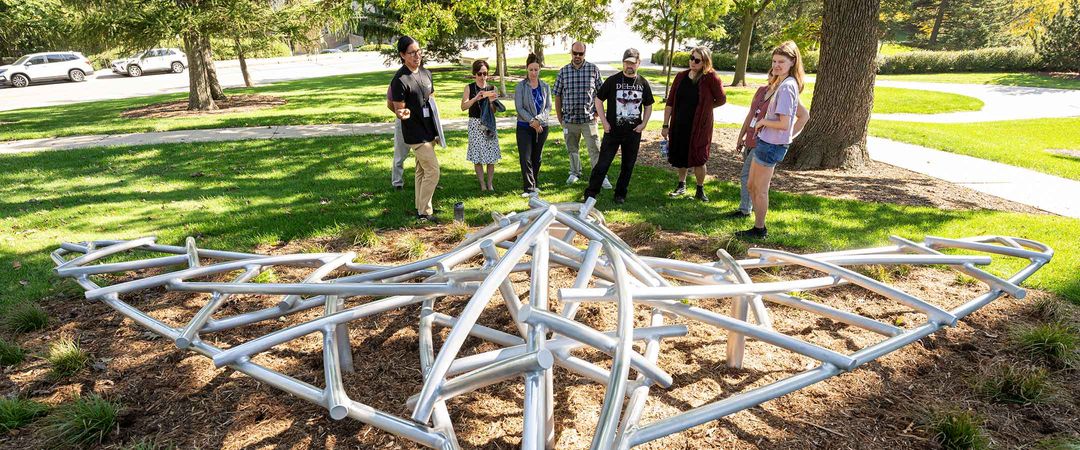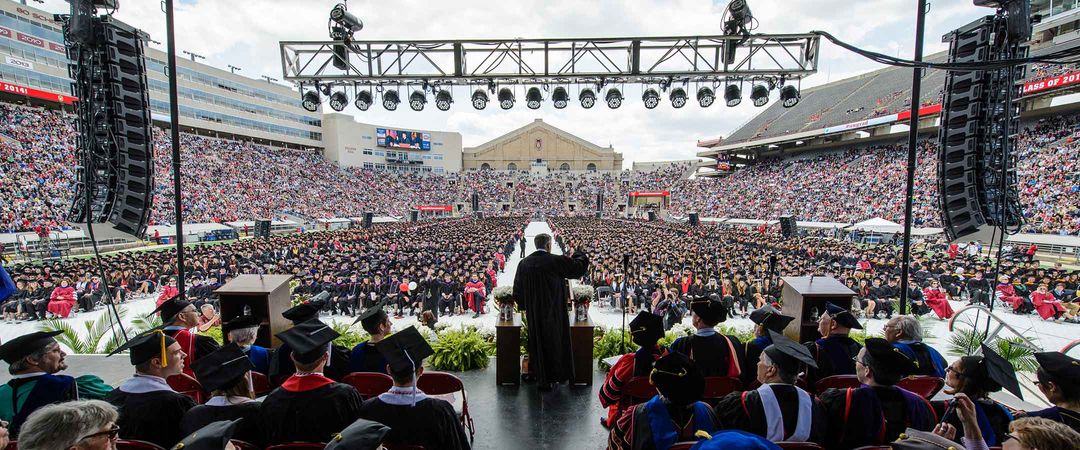Electrical engineering was a natural path for Mike Splinter ’72, MS’74. He grew up tinkering with transistors and televisions with his father in Horicon, Wisconsin. “In people’s houses, sometimes they have play areas for kids,” Splinter explains. “My dad had a radio room.” After earning two degrees in electrical engineering from the UW, Splinter began his decades-long career in engineering management, including 20 years at Intel and 10 years as a top executive at Applied Materials, a Silicon Valley company that leads the world in computer chip and display development.
Splinter now serves as chairman of the board of the Nasdaq and is a founding partner of Wisconsin Inflection Stage Capital (WISC) Partners, a consulting company that works with the UW College of Engineering to invest in Midwestern tech startups. He also serves on the board of directors for the Taiwan Semiconductor Manufacturing Company (TSMC), which makes up the largest share of the global semiconductor market, and he chairs the U.S.-Taiwan Business Council, an organization dedicated to fostering trade between the U.S. and Taiwan. On August 9, Splinter will join The UW Now Livestream to discuss what rising tensions between Taiwan and China could mean for the economy and national security in the United States.
Chief Area of Interest/Expertise:
I’m quite involved in Taiwan. I’m on the board of Taiwan Semiconductor. I’m on the board of another company in Taiwan called Gogoro. I’m also chairman of the U.S.–Taiwan Business Council. I have a long history of doing business in Taiwan. Taiwan is just a unique culture of high-tech-oriented businesspeople, which kind of fits my career and my interests, both in semiconductors and in clean energy. The recent escalation over the last few years — the escalation of tensions where China is raising the stakes on their influence and their demands over Taiwan — this concerns me a lot. Taiwan is critically important to the world economy but very critically important to the U.S. economy and U.S. security.
On The UW Now, I’ll Discuss:
Semiconductors, by themselves, [make up] a $600 billion business. Semiconductors really fuel the multi-trillion-dollar electronics business, which fuels just about everything. You name just about anything — electric cars, the productivity that we have, the education that we’re able to deliver today. You just wouldn’t have it without advanced computer chips. So semiconductors, from their $600 billion business, leverage maybe as much as 50 percent of the overall world economy. And the most advanced semiconductors in the world come out of Taiwan Semiconductor. With the tensions rising in the Taiwan Strait, it becomes a bigger and bigger concern because those chips that are important for the security of the country and important for the economy run through Taiwan.
The most advanced semiconductors are still going to be built in Taiwan for the foreseeable future. There is no changing that. There’s just not. So as the United States thinks about Taiwan, we have to do every possible thing we can to both incentivize and deter China from taking military action against Taiwan.
One Thing I’d Like Viewers to Remember Is:
Just how important Taiwan is to the United States. I think it’s misunderstood. Although having Speaker [Nancy] Pelosi go to Taiwan at a time like this, I think, is a very good sign, even though China reacted negatively — it’s still a very good sign that our high-level government officials have freedom of movement. They have every right to go to Taiwan. It’s ultimately consistent with our policy. But Taiwan is critically important to the United States. And, by the way, critically important to China for more than just chips and electronics reasons.
To Get Smart Fast, Read:
There’s a book called The Avoidable War by Kevin Rudd — I think that would be instructive. Taiwan’s in the news so much — the standard outlets are pretty good. But I always look for a balance there of how you look at things. Wall Street Journal, New York Times, these things have almost daily articles on what’s happening in Taiwan, especially right now after Speaker Pelosi’s visit.





